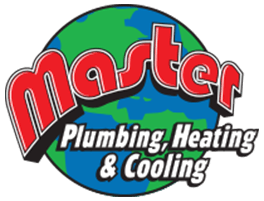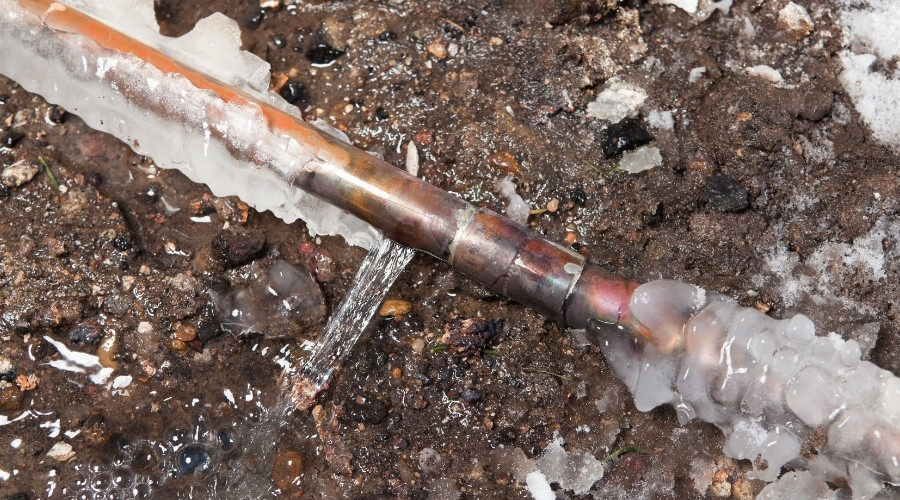Expert plumbers in Cedar Rapids, IA, discuss steps to protect the plumbing during the winter season.
Cedar Rapids, United States - November 25, 2025 / Master Plumbing, Heating & Cooling /
How to Prevent Frozen Pipes This Winter
When temperatures drop, plumbing systems face extra stress that can lead to frozen pipes, leaks, and costly water damage. Taking a few preventive steps before and during cold weather can greatly reduce the risk of problems such as a burst pipe or flooding. This post explains why protecting plumbing in winter is so important and offers practical guidance on how to insulate pipes, use indoor heat effectively, and winterize each outdoor faucet to keep water moving safely.
Insulate the Pipes
 One of the most effective ways to guard against frozen pipes is to add pipe insulation wherever plumbing runs through unheated or poorly insulated spaces. Areas like attics, crawl spaces, unfinished basements, and garages often stay much colder than the rest of the home, making freezing pipes far more likely. Wrapping exposed lines in foam pipe insulation helps hold in warmth and provides a barrier between the cold air and the water inside the pipe.
One of the most effective ways to guard against frozen pipes is to add pipe insulation wherever plumbing runs through unheated or poorly insulated spaces. Areas like attics, crawl spaces, unfinished basements, and garages often stay much colder than the rest of the home, making freezing pipes far more likely. Wrapping exposed lines in foam pipe insulation helps hold in warmth and provides a barrier between the cold air and the water inside the pipe.
To insulate pipes properly, focus on any sections that are visible and easily accessible. Pay special attention to pipes running along exterior walls, near vents, or close to doors and windows where drafts occur. Even a small length of exposed pipe in a cold zone can become the starting point for a freeze that travels further into the system.
By taking time to insulate pipes before severe weather arrives, homeowners create an extra layer of protection against the pressure buildup that can cause a pipe burst. Pipe insulation is relatively inexpensive compared to the cost of repairs and cleanup after a major leak or burst pipe event, making it a smart investment in winter readiness.
Keep the Heat on and Open Cabinets
 Indoor heat is another key defense against freezing pipes. Maintaining a consistent temperature inside the home helps keep water flowing and prevents sections of pipe from dropping below freezing. Instead of allowing indoor temperatures to fluctuate dramatically between day and night, many plumbing professionals recommend setting the thermostat to a steady, reasonable level throughout cold spells. A stable indoor environment gives pipes a better chance of staying above the danger zone.
Indoor heat is another key defense against freezing pipes. Maintaining a consistent temperature inside the home helps keep water flowing and prevents sections of pipe from dropping below freezing. Instead of allowing indoor temperatures to fluctuate dramatically between day and night, many plumbing professionals recommend setting the thermostat to a steady, reasonable level throughout cold spells. A stable indoor environment gives pipes a better chance of staying above the danger zone.
Cabinets can also trap cold air around plumbing if left closed. Under-sink cabinets in kitchens and bathrooms often hide supply lines that run along exterior walls. When outdoor temperatures plummet, these spaces can become chilly pockets, even in an otherwise warm home. Leaving cabinet doors open during particularly cold nights allows warmer room air to circulate around the pipes, lowering the risk of frozen pipes and the resulting pipe burst.
In homes that may be unoccupied for short periods in winter, such as during holiday travel, keeping the heat on at a lower but safe setting can help prevent freezing pipes while still conserving energy. Combining consistent heating with targeted pipe insulation offers strong protection against winter-related plumbing damage.
Winterize Outdoor Faucets
Outdoor plumbing is especially vulnerable to cold temperatures. Water lines that supply an outdoor faucet are often exposed to freezing air, making them prime candidates for damage. Properly winterizing each outdoor faucet before the coldest part of the season is a crucial step in preventing frozen pipes in exterior walls and protecting interior plumbing from a potential pipe burst.
The process begins by disconnecting garden hoses from the outdoor faucet and draining any water remaining in the hose. Hoses left attached can trap water in the faucet and connected pipe, increasing the risk of freezing. After removing the hose, the shutoff valve for the outdoor faucet—usually located inside the home or basement—should be turned off. Once the supply is shut off, opening the outdoor faucet allows any remaining water in the line to drain out.
To complete the winterization, covering the outdoor faucet with an insulating cover or similar protection helps shield it from freezing wind and frigid air. This simple step, combined with shutting off the water and draining the line, greatly reduces the chance of ice forming inside the pipe. By giving outdoor faucets this extra attention, homeowners can avoid many of the most common cold-weather plumbing emergencies.
About Master Plumbing, Heating & Cooling
Master Plumbing, Heating & Cooling is a leading provider of expert plumbing and HVAC services in Cedar Rapids and the surrounding areas. Their helpful and informative technicians use the latest technology to deliver quality, on-time service you can count on. Call them today for emergency plumbing repairs in Cedar Rapids, IA.

Contact Information:
Master Plumbing, Heating & Cooling
3111 1st Ave SE
Cedar Rapids, IA 52402
United States
Amanda Marshall
(319) 363-7533
https://masterplumbingcr.com/

